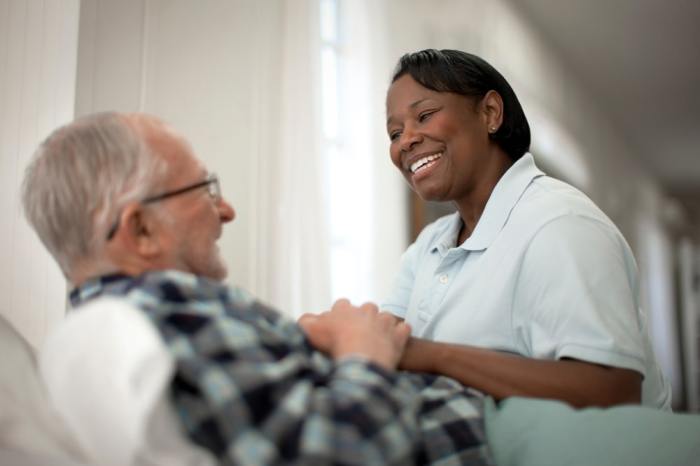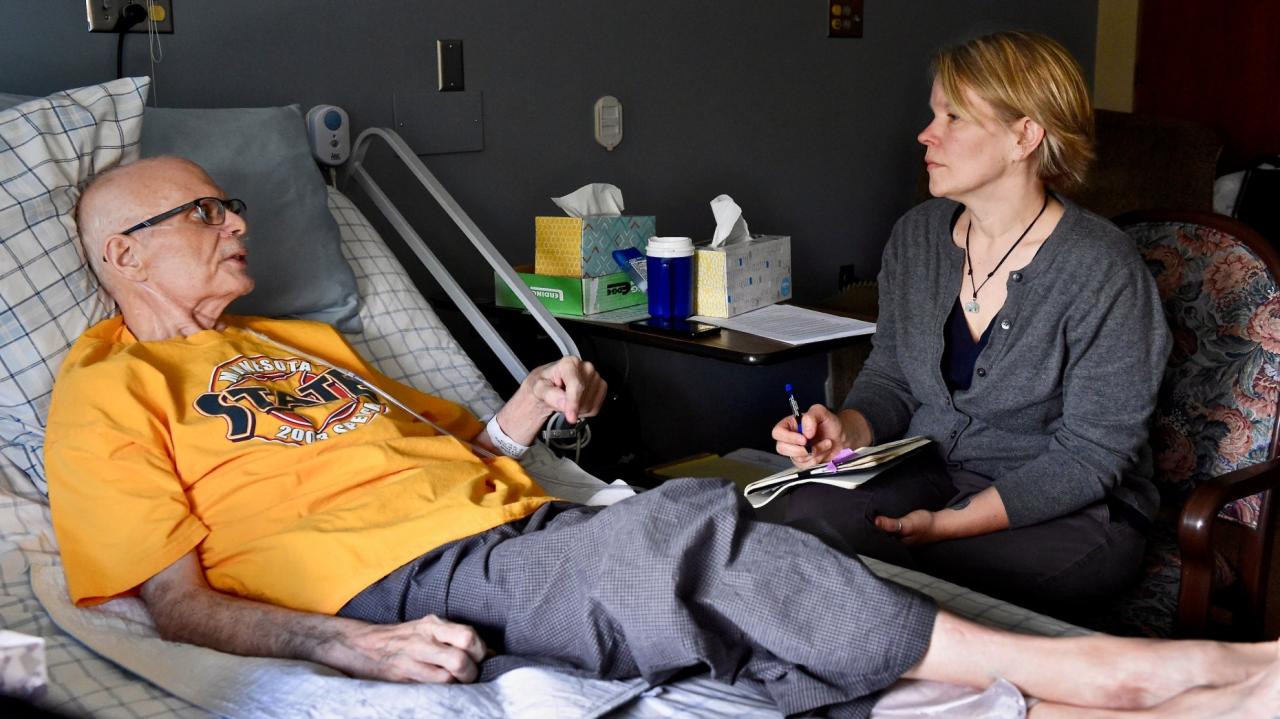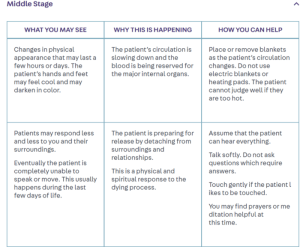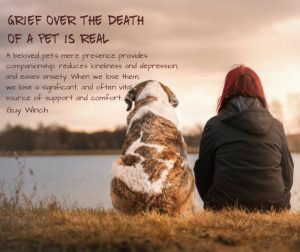
Death doulas and their role are increasingly recognized as vital components of modern end-of-life care. These compassionate professionals provide invaluable support to individuals and families navigating the complex emotional, practical, and spiritual aspects of death and dying. Unlike hospice workers who focus primarily on medical care for the terminally ill, or palliative care providers who manage symptoms, death doulas offer a unique blend of emotional support, practical assistance, and advocacy, empowering individuals to create a meaningful and peaceful end-of-life experience tailored to their personal wishes and cultural background.
Their services encompass a wide range of support, from assisting with advance care planning and legal documentation to providing emotional comfort and facilitating meaningful conversations with loved ones. Death doulas also play a crucial role in helping families navigate the grieving process after the loss of a loved one, offering guidance and resources to aid in their healing journey.
The increasing recognition of death doulas underscores a societal shift towards embracing a more holistic and person-centered approach to end-of-life care, focusing not just on medical interventions but also on the emotional and spiritual well-being of the dying individual and their family.
The Death Doula-Client Relationship
The relationship between a death doula and their client is built on trust, empathy, and mutual respect. It’s a deeply personal and often intimate connection, forged during a vulnerable and challenging time in the client’s life. The death doula acts as a guide and support system, helping the client navigate the emotional, practical, and logistical complexities of the dying process and end-of-life planning.
This relationship is characterized by open communication, shared decision-making, and a commitment to honoring the client’s wishes and values.Emotional Support Provided by Death DoulasDeath doulas provide crucial emotional support, helping clients and their families cope with the intense emotions associated with dying and death. This includes actively listening to fears, anxieties, and grief; validating their feelings; and offering reassurance and comfort.
They create a safe space for open communication, allowing clients to express themselves without judgment. They may also help clients process difficult memories, reconcile relationships, and find peace with their impending death. For example, a death doula might help a client write letters to loved ones, plan a meaningful farewell gathering, or simply sit with them in silence, offering a calming presence.Practical Assistance Offered by Death Doulas During the Dying ProcessBeyond emotional support, death doulas provide valuable practical assistance.
This can encompass a wide range of tasks, from helping with personal care (such as bathing or assisting with mobility) to managing household chores or coordinating with healthcare providers. They may also help with pain management strategies, ensuring the client’s comfort and dignity. For instance, a death doula might arrange for hospice care, assist with medication management (under the guidance of medical professionals), or simply ensure the client has access to comfortable bedding and nutritious meals.Assistance with Legal and Administrative Tasks Related to End-of-Life PlanningDeath doulas often assist clients with navigating the often complex legal and administrative tasks associated with end-of-life planning.
This can involve helping them complete advance directives (such as living wills and durable power of attorney for healthcare), ensuring their wishes are documented and legally sound. They may also help with estate planning, contacting relevant agencies, and managing insurance claims. For example, a death doula might help a client gather necessary documents for their will, connect them with an estate lawyer, or assist in organizing their financial affairs.Scenario Demonstrating Effective Communication Between a Death Doula and a Client Facing a Terminal IllnessImagine Sarah, a 68-year-old woman diagnosed with terminal cancer.
She is feeling overwhelmed and anxious about the future. Her death doula, Maria, visits her regularly. During one session, Sarah expresses fear of dying alone and feeling a lack of control. Maria listens empathetically, validating Sarah’s feelings. “It’s completely understandable to feel this way, Sarah,” Maria says.
“Many people facing this experience similar fears. What aspects of feeling in control are most important to you right now?” This open-ended question encourages Sarah to articulate her specific needs and preferences. Following this, Maria and Sarah collaboratively plan a small, intimate gathering with close family and friends, allowing Sarah to dictate the tone and content of the event, giving her a sense of agency and control over her final moments.
Maria ensures the practical arrangements are made, thereby relieving Sarah of additional stress and allowing her to focus on connecting with her loved ones.
Death Doula Training and Certification

Becoming a death doula requires dedicated training and often, certification. This process equips individuals with the necessary knowledge, skills, and ethical framework to provide compassionate and informed support to those nearing the end of life and their families. The training covers a broad range of topics, from practical skills to emotional intelligence, ensuring a holistic approach to end-of-life care.
Typical Curriculum of a Death Doula Training Program, Death doulas and their role
Death doula training programs typically encompass a comprehensive curriculum covering various aspects of end-of-life care. These programs often involve a blend of online learning modules, in-person workshops, and practical experience. Common topics include: the physical and emotional processes of dying, communication and active listening skills, grief and bereavement support, legal and ethical considerations surrounding death and dying, practical aspects of death care (such as body preparation and post-mortem care, where applicable within legal and cultural boundaries), spiritual and cultural perspectives on death and dying, and self-care for death doulas.
The amount of time dedicated to each topic varies depending on the program’s focus and length. Some programs may offer specialized tracks focusing on specific populations or circumstances, such as pediatric palliative care or supporting families in diverse cultural contexts.
Key Skills and Qualities of Successful Death Doulas
Successful death doulas possess a unique blend of skills and qualities. Beyond the technical knowledge gained through training, emotional intelligence and empathy are paramount. Effective communication and active listening are crucial for building trust and rapport with clients and their families. The ability to remain calm and present in emotionally charged situations is also essential. Further, organizational skills and the capacity to manage logistics are important for coordinating care and support.
Finally, self-awareness and the ability to manage one’s own emotional well-being are critical for maintaining professional boundaries and preventing burnout. These qualities are developed and honed throughout the training process and through continued professional development.
Comparison of Death Doula Certification Organizations
Several organizations offer death doula certification. While the core competencies remain largely consistent, differences exist in curriculum focus, training methodology, and certification requirements. Some organizations may emphasize a more spiritual or holistic approach, while others may focus more on the practical aspects of end-of-life care. The length and intensity of the training programs also vary significantly. Potential students should carefully research different organizations to find a program that aligns with their values and learning style.
Direct comparison requires detailed examination of individual programs offered by each organization, and this information is readily available on their respective websites. A thorough review of their curriculum, cost, and continuing education requirements is strongly recommended.
Resources for Aspiring Death Doulas
Finding reliable training and information is crucial for those interested in becoming death doulas. Several reputable resources can guide aspiring professionals through this process.
- INELDA (International End-of-Life Doula Association): Provides resources, training standards, and a directory of certified doulas.
- Doula Trainings International: Offers a variety of doula trainings, including end-of-life doula training.
- National Hospice and Palliative Care Organization (NHPCO): Offers resources and information on hospice and palliative care.
- Individual training programs: Many independent trainers and organizations offer death doula certification programs. Thorough research is essential to find a reputable program.
The Impact of Death Doulas on Families: Death Doulas And Their Role
Death doulas provide invaluable support to families navigating the complex and emotionally challenging process of death and dying. Their presence alleviates the burden on family members, allowing them to focus on connecting with their loved one and processing their grief in a healthier, more supportive environment. This support extends beyond the immediate period of death, offering a lasting positive impact on the family’s ability to cope with loss.Death doulas facilitate peaceful and meaningful end-of-life experiences by providing practical and emotional assistance.
They offer a calming presence, manage practical arrangements, and help families create a comforting and personalized atmosphere for their loved one’s final moments. This support ensures the dying individual experiences dignity, comfort, and a sense of peace, while also empowering the family to participate meaningfully in this significant life transition.
Alleviation of Burden on Family Members
The practical tasks associated with end-of-life care can be overwhelming for grieving families. Death doulas take on many of these responsibilities, freeing up family members to focus on emotional support and saying goodbye. This can include tasks such as coordinating medical care, managing paperwork, arranging funeral services, and providing emotional support to the family. By handling these practicalities, death doulas prevent family members from being burdened with logistical details at a time when they need to focus on their emotional well-being.
This reduces stress and allows for a more meaningful farewell.
Facilitating Peaceful and Meaningful End-of-Life Experiences
Death doulas play a crucial role in creating a peaceful and meaningful environment for both the dying individual and their family. They help families navigate difficult conversations about end-of-life wishes and preferences, ensuring the individual’s desires are respected and honored. They also offer emotional support, helping families cope with the emotional rollercoaster of grief and loss. Through their presence and expertise, death doulas foster a sense of peace and acceptance, allowing for a more meaningful and less traumatic experience for everyone involved.
This can involve creating personalized rituals, facilitating communication between family members, and providing a listening ear during times of intense emotion.
Examples of Support in the Grieving Process
Death doulas continue to support families even after the death of their loved one. This post-death support can include assistance with funeral arrangements, grief counseling referrals, and ongoing emotional support. They may help families navigate the complex legal and financial aspects of death, such as estate planning and insurance claims. They also offer a listening ear and a safe space for families to process their grief and share memories of their loved one.
For example, a death doula might help a family create a memorial service that truly reflects the life and personality of the deceased, or facilitate a meaningful ritual to help them say goodbye.
Case Study: Supporting a Family Coping with the Death of a Parent
The Miller family was struggling to cope with the impending death of their mother, Eleanor, who was suffering from advanced cancer. Overwhelmed by the emotional and logistical challenges, the family felt lost and disorganized. They engaged the services of a death doula, Sarah, who immediately provided a sense of calm and order. Sarah helped Eleanor and her family create a peaceful and comfortable environment at home.
She coordinated with the hospice team, managed medication, and ensured Eleanor’s comfort. She also facilitated conversations between Eleanor and her children, helping them express their love and say goodbye. After Eleanor passed, Sarah assisted the family with funeral arrangements, providing practical support and emotional guidance. The Miller family reported that Sarah’s presence significantly reduced their stress and allowed them to focus on their emotional connection with their mother during her final days and in the grieving process that followed.
They felt supported, empowered, and better equipped to navigate their grief, thanks to Sarah’s compassionate and professional care.
Death, Dying, and the Cultural Context
Cultural attitudes towards death and dying vary significantly across the globe, shaping not only how individuals approach their own mortality but also how communities respond to loss and bereavement. These diverse perspectives profoundly influence the role and acceptance of death doulas.Cultural beliefs and practices significantly impact the role of death doulas. In some cultures, the dying process is viewed as a deeply personal and family-centered event, with significant religious or spiritual rituals.
In these contexts, a death doula’s role might focus on facilitating these rituals and providing emotional support within the established cultural framework. Conversely, in cultures with more secular or individualistic approaches to death, the death doula might play a more prominent role in advocating for the dying person’s wishes regarding medical care, end-of-life planning, and pain management.
Cultural Variations in End-of-Life Care
Cultural beliefs and practices surrounding death and dying are deeply ingrained and affect how families cope with loss. Some cultures emphasize communal grieving, with large gatherings and elaborate funeral rites. Others prioritize private mourning and a more subdued approach. These variations necessitate a nuanced understanding from death doulas, who must adapt their approach to respect and support each family’s unique traditions and beliefs.
For example, in some cultures, the family may take a very active role in the care of the dying, while in others, this responsibility may fall more heavily on healthcare professionals. A death doula’s role is to facilitate a smooth transition that aligns with the family’s preferences and beliefs.
The Death Doula’s Adaptability to Cultural Differences
Death doulas must possess cultural sensitivity and adaptability. They need to be aware of the different rituals, customs, and beliefs surrounding death in various cultures. This awareness allows them to provide support that is both respectful and effective. For example, a death doula working with a family from a culture that practices a specific death vigil might assist in coordinating the logistics of the vigil, ensuring that all necessary arrangements are made and that the family’s needs are met.
Conversely, a family that prefers a more private and quiet passing would receive a different type of support, emphasizing emotional comfort and gentle presence.
Comparative Analysis of Death Doula Acceptance and Utilization
The acceptance and utilization of death doulas vary considerably across cultures. While gaining popularity in some Western societies, their presence in other parts of the world is still nascent. This disparity reflects the varying cultural attitudes toward death and dying, as well as access to resources and information.
| Culture | Acceptance of Death Doulas | Utilization of Death Doulas | Cultural Factors Influencing Acceptance/Utilization |
|---|---|---|---|
| United States | Increasingly accepted, particularly in urban areas | Growing, but still relatively low compared to other healthcare professionals | Rising awareness of end-of-life care options, increasing secularization |
| Japan | Limited awareness and acceptance | Low utilization | Strong emphasis on family-centered care, traditional Buddhist funeral practices |
| Mexico | Emerging acceptance, particularly in urban areas | Growing, influenced by changing societal views on death and dying | Blending of traditional Catholic beliefs with evolving modern practices |
| India | Limited awareness and acceptance, varies regionally | Low utilization | Diverse religious and cultural practices, varying levels of access to healthcare |
Ethical Considerations for Death Doulas

Death doulas, while offering invaluable support during a deeply personal and vulnerable time, face a unique set of ethical challenges. Navigating these complexities requires a strong ethical compass, adherence to professional standards, and a commitment to upholding the dignity and autonomy of their clients. This section explores key ethical considerations that death doulas must consistently address in their practice.
Potential Ethical Dilemmas
Death doulas may encounter various ethical dilemmas. For example, a client might request assistance with actions that conflict with the doula’s personal values or legal framework, such as physician-assisted suicide. Balancing a client’s autonomy with the doula’s own ethical boundaries requires careful consideration and potentially seeking supervision or consultation from experienced professionals. Another dilemma might arise from a family disagreement regarding end-of-life care decisions, placing the death doula in a potentially difficult mediating role.
Maintaining neutrality and focusing on supporting the client’s wishes, while also acknowledging the family’s perspectives, is crucial. The death doula must be prepared to manage situations involving conflicting values or desires within the family unit, always prioritizing the client’s expressed wishes within legal and ethical parameters.
Maintaining Client Confidentiality and Professional Boundaries
Maintaining strict client confidentiality is paramount. Information shared during the death doula-client relationship is highly sensitive and must be treated with the utmost discretion. This includes respecting the client’s privacy concerning medical information, personal beliefs, and family dynamics. Professional boundaries are equally crucial. Death doulas must avoid any form of dual relationships, such as becoming personally involved with clients or their families beyond the professional context.
This helps maintain objectivity and ensures the client’s best interests remain the priority. Clear boundaries prevent potential exploitation or the blurring of professional roles, safeguarding both the client and the death doula.
Legal Considerations for Death Doulas
Informed consent is a cornerstone of ethical and legal practice for death doulas. Clients must fully understand the services offered, the scope of the doula’s role, and any limitations before agreeing to engage their services. This requires clear and concise communication, ensuring the client’s comprehension and ability to make an informed decision. Liability is another crucial legal consideration.
Death doulas should carry appropriate professional liability insurance to protect themselves against potential claims of negligence or malpractice. Understanding local laws and regulations concerning end-of-life care is also essential, as these laws can vary significantly by jurisdiction. Adherence to legal frameworks and maintaining comprehensive insurance are vital for protecting both the death doula and their clients.
Ethical Guidelines and Best Practices
The importance of establishing clear ethical guidelines and best practices cannot be overstated. These guidelines provide a framework for navigating complex situations and ensuring consistent ethical conduct.
- Prioritize client autonomy and self-determination in all decisions related to end-of-life care.
- Maintain strict confidentiality and protect the privacy of all client information.
- Establish and maintain clear professional boundaries to prevent conflicts of interest.
- Seek supervision or consultation when facing challenging ethical dilemmas.
- Obtain informed consent from clients before providing any services.
- Maintain professional liability insurance to mitigate potential risks.
- Continuously engage in professional development to stay updated on best practices and legal requirements.
- Adhere to all applicable laws and regulations regarding end-of-life care.
- Prioritize compassionate and respectful care, recognizing the unique needs of each client and family.
- Document all interactions with clients in a professional and confidential manner.
The Future of Death Doulas
The demand for compassionate end-of-life care is steadily increasing, driven by factors such as an aging population and a growing awareness of the importance of a good death. This creates a fertile ground for the expansion of the death doula profession, a field currently experiencing significant growth and evolving roles. The future of death doulas looks bright, promising both wider acceptance and integration within healthcare systems.The increasing awareness of death doulas’ unique contribution to holistic end-of-life care is fueling this expansion.
More individuals and families are seeking support beyond the medical model, recognizing the value of emotional, spiritual, and practical assistance during a vulnerable time. This demand is pushing for greater professionalization and integration into mainstream healthcare, leading to a more robust and widely accessible service.
Growing Demand and Professional Expansion
The aging global population is a significant driver of increased demand. As the number of elderly individuals requiring end-of-life care rises, so too will the need for compassionate, non-medical support. Further fueling this growth is a societal shift toward prioritizing quality of life and meaningful death experiences. Examples include the increasing popularity of advance care planning and the growing acceptance of death as a natural part of life, rather than a purely medical event.
This shift creates an environment where death doulas’ skills and expertise are increasingly valued. The profession is expected to continue its growth trajectory, with an increasing number of individuals seeking training and certification. This will lead to a larger pool of qualified death doulas able to meet the expanding needs of the population.
Future Role in Healthcare and End-of-Life Care
Death doulas are predicted to play an increasingly vital role within healthcare settings. This integration might involve collaboration with hospices, hospitals, and palliative care teams. Their skills in providing emotional support, facilitating communication, and assisting with practical arrangements can complement the medical care provided. For example, a death doula could work alongside a palliative care team to help families navigate difficult conversations about end-of-life decisions, offer emotional support to grieving family members, and help create a peaceful and meaningful environment for the dying person.
In the future, we may see death doulas formally integrated into hospital or hospice teams, working alongside doctors and nurses to provide a more holistic and patient-centered approach to end-of-life care.
Integration into Existing Healthcare Systems
The integration of death doula services into healthcare systems will require collaboration and understanding from all stakeholders. This includes developing clear guidelines and standards for death doula practice, establishing referral pathways between healthcare providers and death doulas, and securing appropriate reimbursement for their services. Successful integration will depend on recognizing the unique value death doulas bring and addressing concerns about scope of practice and liability.
Pilot programs integrating death doula services into existing healthcare systems in several regions are demonstrating the feasibility and benefits of this approach. The positive outcomes of these programs are likely to influence policy changes and accelerate wider adoption.
Future of Death Doula Training and Professional Development
The future of death doula training will likely involve a greater emphasis on standardization and professionalization. This includes the development of nationally recognized certification programs, continuing education opportunities, and a robust code of ethics. There is a growing need for rigorous training programs that equip death doulas with the necessary skills and knowledge to effectively support individuals and families facing death and dying.
Furthermore, ongoing professional development opportunities are crucial to ensure that death doulas stay abreast of the latest research, best practices, and ethical considerations in the field. The establishment of professional organizations and networks will also be essential in fostering collaboration, sharing best practices, and advocating for the profession’s recognition and integration into healthcare systems.
In conclusion, death doulas are emerging as essential figures in the landscape of modern end-of-life care. Their multifaceted role extends beyond the purely medical, encompassing emotional support, practical assistance, and advocacy for individuals and families facing the challenges of death and dying. By providing personalized care that respects individual preferences and cultural traditions, death doulas empower individuals to achieve a peaceful and meaningful end-of-life experience while simultaneously alleviating the burden on their loved ones.
As societal attitudes toward death and dying evolve, the demand for death doula services is expected to continue to grow, solidifying their place as valuable members of the healthcare team and essential supporters during a deeply personal and transformative life experience.
Essential Questionnaire
What is the difference between a death doula and a funeral director?
Death doulas focus on the emotional and spiritual support of the dying person and their family
-before* death, while funeral directors handle the arrangements
-after* death.
How much does a death doula cost?
Costs vary widely depending on location and services provided, but generally range from a few hundred to several thousand dollars.
Do insurance companies cover death doula services?
Currently, most insurance companies do not cover death doula services, but this may change in the future.
Can anyone become a death doula?
While there are no strict legal requirements, most death doulas undergo training and certification programs to develop the necessary skills and knowledge.







